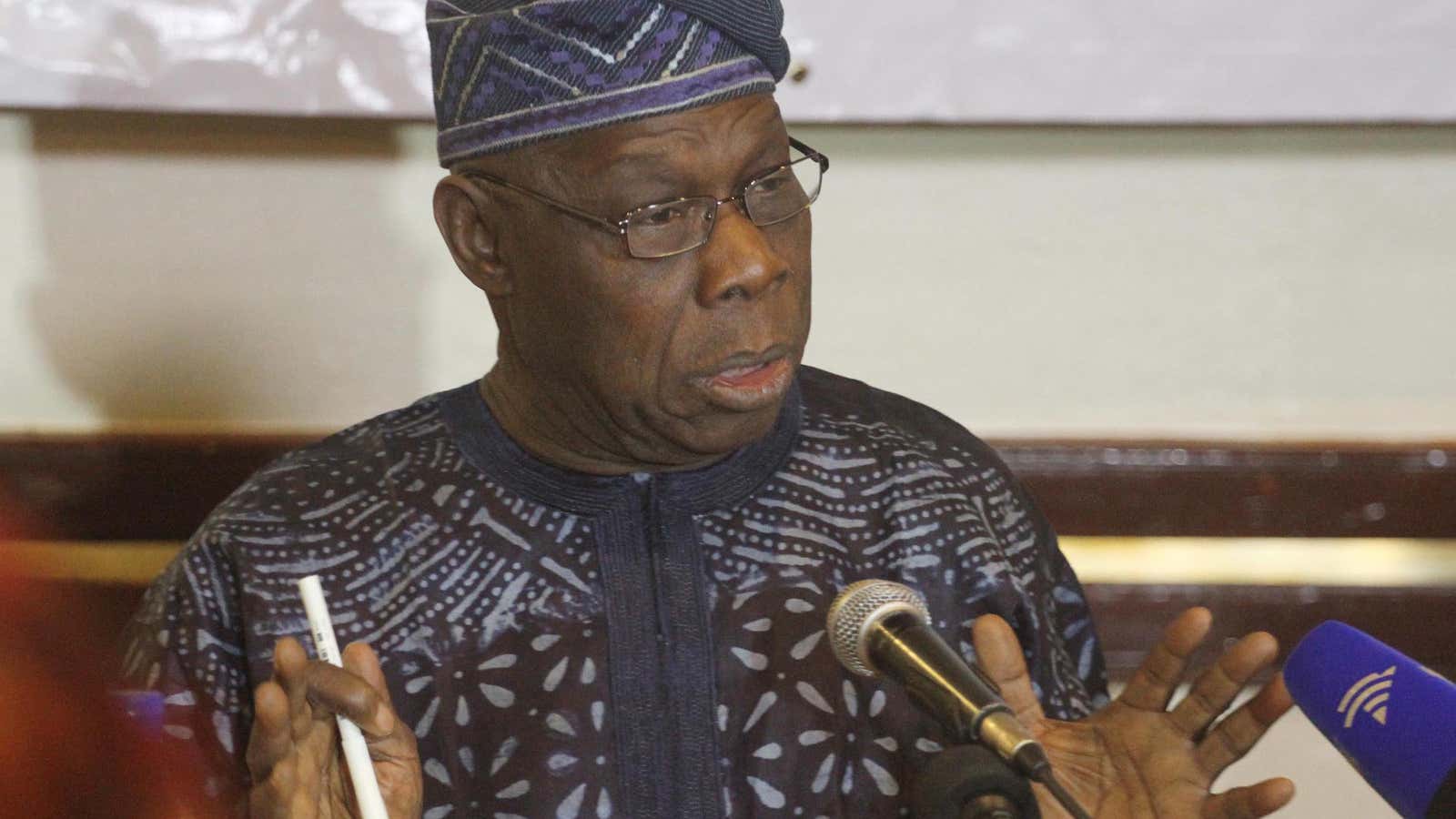In a 1998 interview with Fortune magazine, management guru Peter Drucker said, “Demographics are the single most important factor that nobody pays attention to, and when they do pay attention, they miss the point.” Drucker was being prescient about the implications of the developed world’s aging population.
But those words might just have well come from former Nigerian president Olusegun Obasanjo, who Quartz interviewed recently in New York. The former leader of Africa’s most populous country says demographics are at the heart of the myriad of challenges African countries need to address. It’s the crux of his new co-authored book: Making Africa Work; A Handbook.
The ex-president points to the fact Africa’s population is set to double to 2.5 billion by 2050 even as the continent’s problems with poverty, joblessness and health issues mount. “We will be in a more frightful situation than we already are today unless we stop doing business as usual,” he says.
Since 1960, around when many African countries gained independence, the population of most of those countries would have grown by ten times by 2050. Except one, points out Obasanjo, Niger Republic, with a population of 3.4 million in 1960 would have grown by 20 times at current rates to 68 million in 2050.
Obasanjo is doubtful that without planning African countries can benefit from their faster-growing, younger populations even as most of the developed world gets older. He argues that without measures put in place to support food security, education and healthcare delivery, Africa’s so-called demographic dividend becomes a liability.
Making Africa Work highlights the rapid urbanization we’ve discussed here, as these growing numbers of young people continue their shift from rural areas. The problem is this expansion hasn’t correlated with economic growth. While a city like London has doubled in population every 35 years, some African cities are doubling every 10 years.
For Obasanjo and his co-authors, this isn’t a discussion about birth control or actions to be taken at some point in the future. It’s about preparing African economies today for the coming demographic reality. “Waiting until populations have substantially increased will mean that leaders will only be able to offer measures that come too late for their unemployed citizens.”
And as the ex-president says, none of this will happen without visionary leadership. “You need leaders that are sufficiently confident, knowledgeable and strong enough to be to actually put strong institutions in place.”
